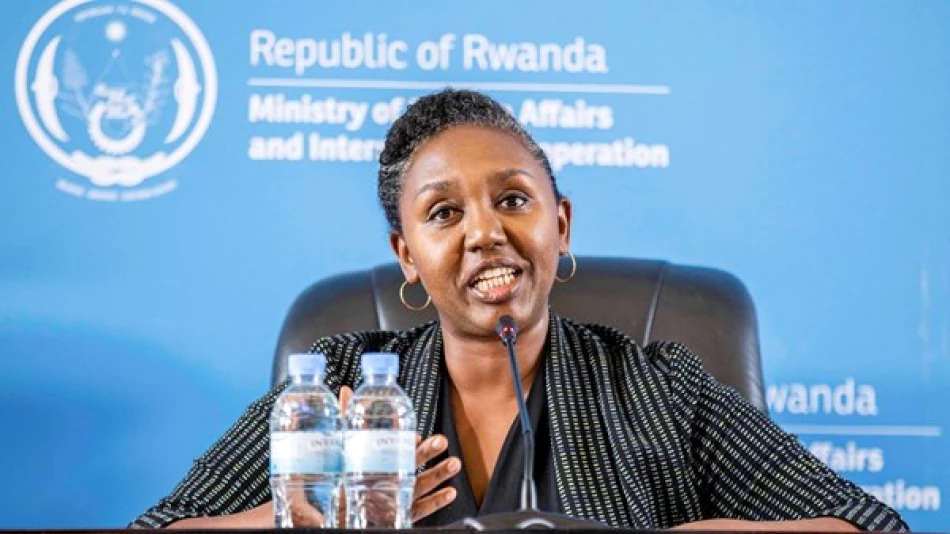
Rwanda Prepares to Welcome 250 Asylum Seekers Relocated from the US
Rwanda Emerges as Global Migration Hub as US Deportation Deal Follows Failed UK Partnership
Rwanda has agreed to accept 250 migrants deported from the United States under a new bilateral arrangement, marking the East African nation's continued positioning as a destination for Western countries seeking to outsource their immigration challenges. The deal comes after Britain's controversial Rwanda deportation scheme collapsed in 2024, suggesting Kigali remains committed to migration partnerships despite previous setbacks.
The New US-Rwanda Migration Framework
Government spokesperson Yolande Makolo announced the agreement on Tuesday, emphasizing Rwanda's historical experience with displacement and integration. "All Rwandan families have suffered displacement, and our community values are based on reintegration and rehabilitation," she stated, though no timeline for implementation was provided.
The arrangement represents a significant shift in US deportation policy, potentially offering an alternative to traditional repatriation methods for migrants whose home countries may be unwilling or unable to accept them back.
Learning from the UK's Failed Experiment
What Went Wrong with Britain's Plan
Rwanda's previous migration deal with the United Kingdom, signed under the Conservative government, was designed to deter Channel crossings by relocating asylum seekers to Kigali. However, the scheme faced sustained legal challenges, human rights criticism, and ultimately cancellation by Labour's new government in 2024 after costing taxpayers hundreds of millions of pounds without a single deportation taking place.
Why the US Deal May Differ
Unlike the UK's asylum seeker relocation program, the US arrangement appears focused on deportations of individuals who may have already exhausted legal processes. This distinction could prove crucial in avoiding the legal quagmire that plagued the British scheme, though human rights organizations are likely to scrutinize the agreement closely.
Rwanda's Strategic Migration Diplomacy
President Paul Kagame's government has systematically positioned Rwanda as a partner for Western nations grappling with migration pressures. Beyond the UK and US deals, Rwanda has hosted refugees from across the region and participated in various international resettlement programs.
This strategy serves multiple purposes: generating revenue through partnership agreements, demonstrating Rwanda's stability and governance capacity on the global stage, and potentially securing broader diplomatic and economic benefits with major powers.
Implications for US Immigration Policy
The Rwanda agreement signals a potential expansion of third-country deportation arrangements, a practice that has gained traction globally as traditional immigration enforcement faces logistical and diplomatic constraints. Countries like Australia have used similar offshore processing arrangements, while the European Union has explored partnerships with North African nations.
For US policymakers, Rwanda offers several advantages: political stability, existing refugee integration infrastructure, and apparent willingness to accept difficult migration cases. However, the arrangement will likely face congressional scrutiny and legal challenges from immigration advocacy groups.
Regional and Global Context
Rwanda's migration partnerships reflect broader trends in global mobility management, where wealthy nations increasingly seek to externalize immigration processing and enforcement. The success or failure of the US-Rwanda deal could influence similar arrangements worldwide, particularly as migration pressures intensify due to climate change, conflict, and economic instability.
The agreement also positions Rwanda uniquely in East Africa, potentially creating tensions with neighbors who may view such deals as legitimizing controversial deportation practices while generating revenue that could provide Rwanda with competitive advantages in regional development.
Most Viewed News

 Layla Al Mansoori
Layla Al Mansoori






